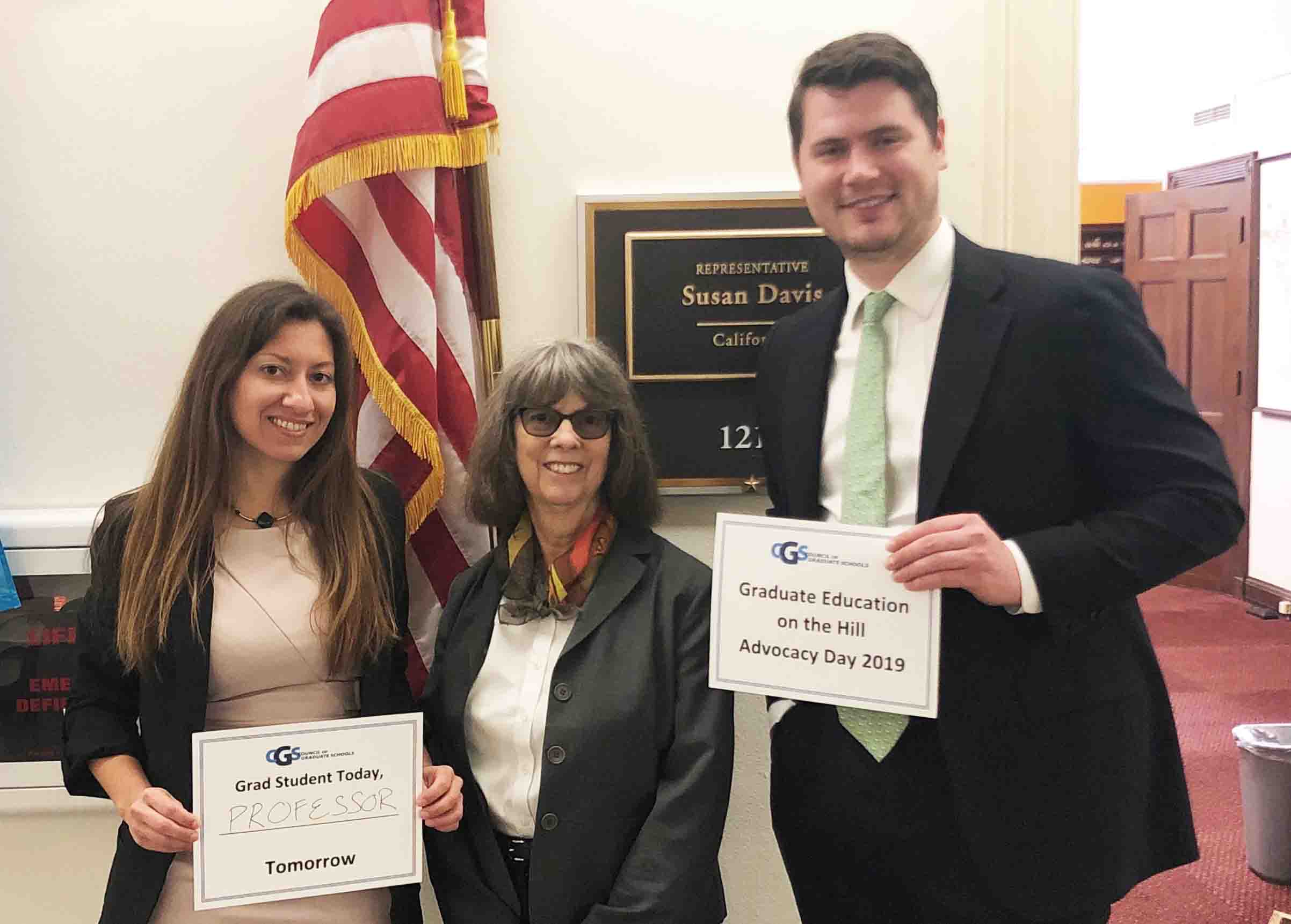
Pullias research assistant advocates for graduate education on Capitol Hill
Pullias Center research assistant Theresa E. Hernandez was one of two graduate students from USC to meet with lawmakers in Washington, D.C. to advocate for graduate education last month.
Hernandez, along with USC Price PhD candidate Andrew Eisenlohr and USC Vice Provost Sally Pratt, joined about 40 other deans and graduate students to participate in the Council of Graduate Schools’ 2019 Advocacy Day. After a training session on effective advocacy strategies, Hernandez and other advocates met with 61 House and Senate offices of both parties on April 4.
“This was the first year ever that the Council of Graduate Schools invited graduate students to accompany their deans, so that we could tell our personal stories and put more of that human face on the appeal to support graduate education specifically,” said Hernandez. “I decided to participate because it just sounded really unique as an opportunity—different than the research activities or the more local advocacy work that I’ve engaged in. I thought it would be a great learning experience to see how national policy advocacy happens.”
Some main goals of the Advocacy Day was to urge policymakers to preserve graduate student options for borrowing and loan repayment in the Higher Education Act reauthorization, to extend federal student aid by allowing grad students to use remaining Pell eligibility and sustain research funding. Hernandez said she got an opportunity to share her own educational story at the meetings, where she conversed with staffers of California senators and other local representatives.
“I talked about the fact that I’m a first gen college student, a first gen grad student from a low socioeconomic background and a Latina,” Hernandez said. “These things influenced my experience of undergrad at Columbia, which was a very negative experience. It was very difficult transition and acculturation that kind of had me hit pause on my education for a while. But it ultimately inspired me to come back to get my master’s and now my PhD, and inspires me to do the work I’m doing to make higher ed a more equitable space to people who come from my background.”
At the Pullias Center, Hernandez works with Pullias faculty member Julie Posselt on the Equity in Graduate Education project. Last year, Hernandez penned a fiery op-ed for the Huffington Post titled “Abolish standardized testing for college admissions,” pointing out the use of standardized tests “disproportionately excludes racial minorities, women and low-income persons from selective colleges.”
Hernandez said participating in Advocacy Day gave her more appreciation for thinking beyond conducting research to getting it into the hands of policymakers in an impactful manner.
“Just seeing the process of policymaking—with all of the work around what our representatives do that informs their positions and their engagement with constituents, how meetings get set up, how the staffers take the meetings and what kind of voices people have either individually or with a bigger group around a bigger issue—was interesting to me,” Hernandez said. “Also, participating helped me see the ways in which grad students and others who are really fighting for educational support from the government are a part of the process, and got me thinking about the roles we have, and the voices we have.”
Photo (left to right): Pullias research assistant Theresa E. Hernandez, USC Price PhD candidate Andrew Eisenlohr and USC Vice Provost Sally Pratt on Council of Graduate Schools’ 2019 Advocacy Day in Washington, D.C.